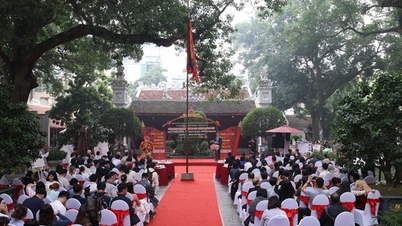My husband and I have a small house that sells food. We plan to make a contract to buy this house, a garden in the countryside and a SH motorbike to have money to buy another bigger house.
I would like to ask according to the law, is it mandatory for the above assets to be notarized when buying and selling or transacting? If we later want to make a will to leave assets to our children, do we have to have it notarized?
Reader Hong Tham.
Consulting lawyer
Lawyer - Dr. Nguyen Thi Kim Vinh (Director of TNJ Law Firm, former judge of the Supreme People's Court) advises that notarization is the act of certifying the authenticity and legality of contracts and civil transactions.
Contracts for transfer, donation, mortgage, capital contribution using land use rights, land use rights and assets attached to land must be notarized or certified (Clause 3, Article 167 of the Land Law).

Lawyer - Dr. Nguyen Thi Kim Vinh
Similarly, for residential properties, According to Clause 1, Article 122 of the Housing Law: "In case of buying, selling, donating, exchanging, contributing capital, mortgaging houses, or transferring commercial housing sale and purchase contracts, the contract must be notarized and authenticated."
For properties that must be registered (motorbikes, cars, etc.), in Article 8 of Circular 58/2020 of the Ministry of Public Security and Article 11 of Circular 24/2023 of the Ministry of Public Security (effective from August 15), to submit documents to transfer ownership (change name) of motorbikes, one of the required documents is a vehicle sale contract with notarized or certified confirmation.
Thus, in your case, if you want to transfer the house, land use rights for the garden plot in the countryside and the SH motorbike, all sales contracts, transactions and transfers must be made in writing and notarized or certified.
In case parents want to leave their property to their children, according to Articles 627 and 628 of the Civil Code, the will can be made in the following forms and meet the following conditions:
Oral will: only oral wills can be made in In case a person's life is threatened by death and he/she is unable to make a written will. After 3 months from the time of the oral will, if the testator is still alive, lucid and clear-minded, the oral will is automatically revoked.
Unwitnessed written will: the testator must write and sign the will himself.
Written will with witnesses: is made in case the testator does not write the will himself, according to which the testator can type the will himself or ask someone else to write or type the will, but there must be at least two witnesses. The testator must sign or fingerprint the will in front of the witnesses; the witnesses confirm the signature and fingerprint of the testator and sign the will.
Notarized/authenticated written will: In case the testator is physically handicapped or illiterate, the will must be made in writing by a witness and notarized or authenticated.
"Notarization/authentication is not required for all types of wills mentioned above. However, this will be a solid legal basis, helping your family to conveniently declare inheritance, extract wills, avoid cases where the will is lost, damaged or resolves disputes later," said lawyer Vinh.
According to the lawyer, when making a will in the above forms, the following conditions must be met:
Firstly, the testator must be of sound mind and clear-headed when making the will; not be deceived, threatened or coerced.
Second, the content of the will does not violate the prohibitions of the law, is not contrary to social ethics; the form of the will does not violate the provisions of the law.
Source link






































![[Photo] Parade to celebrate the 50th anniversary of Laos' National Day](/_next/image?url=https%3A%2F%2Fvphoto.vietnam.vn%2Fthumb%2F1200x675%2Fvietnam%2Fresource%2FIMAGE%2F2025%2F12%2F02%2F1764691918289_ndo_br_0-jpg.webp&w=3840&q=75)







































































Comment (0)